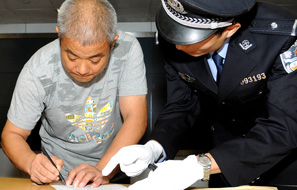Cliches on way out in speeches by government
After officials were urged to speak less and say more, experts involved in provincial legislative sessions say they have noticed an obvious decrease in the usual cliches.
Promises to "attach great importance" to an issue and calls for "relevant departments" to act, among other vague terms, have been a fixture of official speeches for some time.
Yet this year the terms have begun to disappear, mainly due to calls from within the Party, including newly elected Party chief Xi Jinping.
Speeches at meetings of the Beijing People's Congress, the city's legislature, have been shorter and had more content than ever before, according to Wang Weiping, a deputy and a senior engineer with the capital's commission of city administration and environment.
"It's good there are fewer cliches. It improves efficiency," he said.
Speeches during annual sessions of the Zhejiang province's legislative body, which concludes on Tuesday, have also been more direct and more critical, such as targeting insufficient medical services, Zhejiang Daily reported.
Zhou Shuzhen, a politics professor at Renmin University of China, said he witnessed Wang Qishan, the Party's top discipline official, interrupt a lecture at an anti-corruption seminar after the speaker began, "Distinguished Secretary Wang".
"He told everyone to speak directly to the point," he recalled in an interview with China Daily. "He told the speaker not to be so polite."
Not only does the "eight-point" code for officials, put forward by the Party's central leadership on Dec 4, require a change in working style to ensure closer ties with the people, but Xi also expressed his opposition to cliches during a visit to the National Museum on Nov 29.
Meaningless talk jeopardizes national interests, he warned.
His comments were followed by a host of surveys by media to find the public's "most-hated official cliches".
People's Daily launched an online poll on Jan 9, saying: "No speech is not important, no applause is not enthusiastic, and no process is not smooth."
Liu Xiaoying, a professor of media research at the Communication University of China, said that changing the way authorities communicate with the public can help improve their image following a string of corruption scandals.
"By speaking simply, the government can make itself better understood by the public," Liu said.
However, Chen Tingting, a township official in Jining, Shandong province, said it may not be so simple to change old habits.
The reason many officials chose to use meaningless words is they are afraid of making a mistake, she said.
"They know cliches are boring, but it's safer to speak in cliches than give their real opinions on some issues," she added.
Contact the writers at anbaijie@chinadaily.com.cn and caoyin@chinadaily.com.cn

























